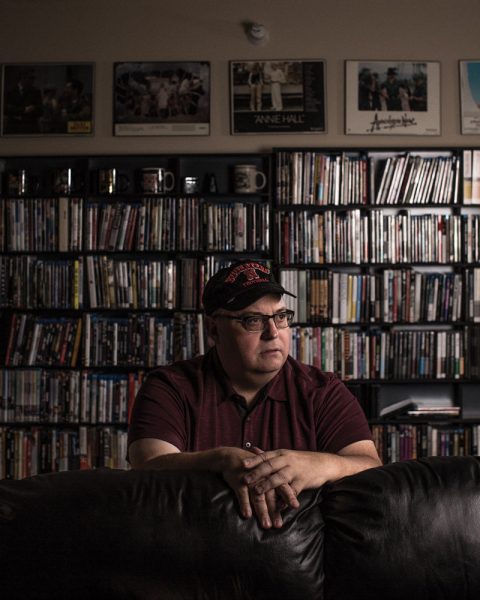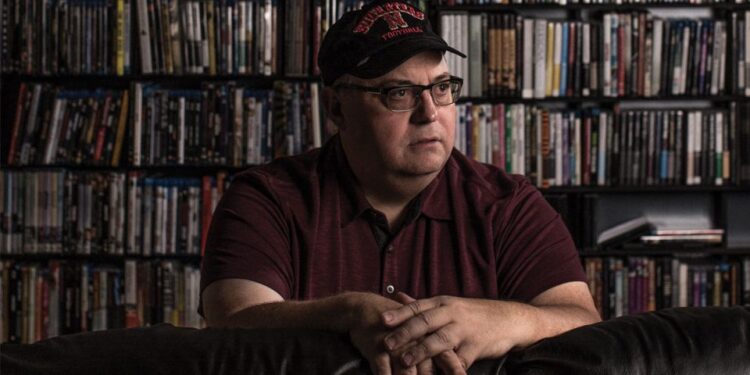Jim Fields is a self-taught auteur, a busy English teacher, and a Nebraska-nice filmmaker trying to finish his latest project whenever he can find time. The film, Life After Ex, is a romantic comedy about a gay couple’s divorce.
Fields’ Objectif49 Films—named after the film society that spurred the French New Wave—has been busy for more than a decade making independent films with a Midwestern vibe. If Fields’ name doesn’t resonate as loudly as Mr. Payne’s, give it time.
His oeuvre of films includes one that should be on every Husker fan’s watch list: Bugeaters, a documentary about the first decade of Nebraska football. Not only entertaining and informative (having taken a year to research), Bugeaters won Best Documentary at the 2011 Estes Park Film Festival in Colorado.
In 2006, Fields released his first documentary, Preserve Me a Seat, about the preservation and demolition of historic movie theaters throughout America. It began as a film about the impending demolition of Fields’ first love, the majestic Indian Hills Theater—now a parking lot near 84th and Dodge streets.
 “Going to the Indian Hills in the mid-`60s to `70s made a big impact on me,” says Fields. “Reserved seats, ultra-wide screen, souvenir programs. When I saw 2001: A Space Odyssey in 70mm, it was the first time I had seen a film as opposed to a movie. I saw it over and over. It’s my favorite.”
“Going to the Indian Hills in the mid-`60s to `70s made a big impact on me,” says Fields. “Reserved seats, ultra-wide screen, souvenir programs. When I saw 2001: A Space Odyssey in 70mm, it was the first time I had seen a film as opposed to a movie. I saw it over and over. It’s my favorite.”
Back then, Fields says the public expected films to be made in Hollywood, not Nebraska.
“You had to go to film school out there or in New York. The thought that someone could make low-budget movies in Nebraska seemed impossible. I went to Chicago in 1984 and didn’t even last a semester. I had no concept of how expensive it was going to be.”
Fields thought his dream was dead after a brutal Windy City eviction on Thanksgiving Day put him and his belongings on the street. He came back to Omaha, forlorn but resilient. A decade passed before he rekindled his dream in the late `90s.
“When digital video was invented, I got really excited,” Fields says. “I started doing research on it and went to a lot of workshops.”
At the world-famous Donna Reed Festival, Fields met and struck up a correspondence with Gary Graver, cinematographer on Orson Welles’ unfinished The Other Side of the Wind.
“He was a great resource,” Fields says. “You couldn’t research these things like today. There were no YouTube videos on making a film. He was very encouraging and gave me great advice.”
Fields’ 2004 documentary 416 (about Nebraska’s constitutional amendment to ban same-sex marriage) won Best Feature and the coveted Audience Award at the Central Nebraska Film Festival, Best Documentary of 2004 at Hardacre Film Festival, and was the Fargo Film Festival’s Second Place Documentary in 2005.
His other films include a comedy-drama called Flyover Country about a friendship between two college students, one straight and one gay, and how they are perceived. A definite release date for his latest film, Life After Ex, has not been announced.
Not bad for a man with deferred dreams of film school.
Visit objectif49films.com for more information.











